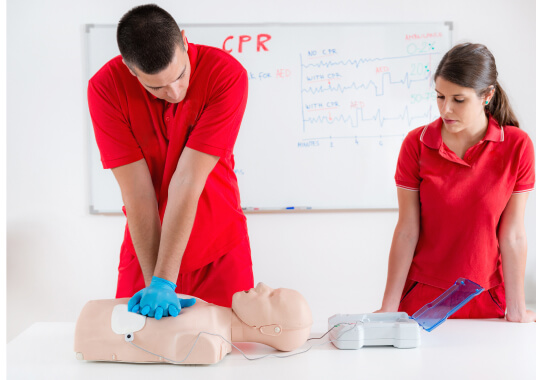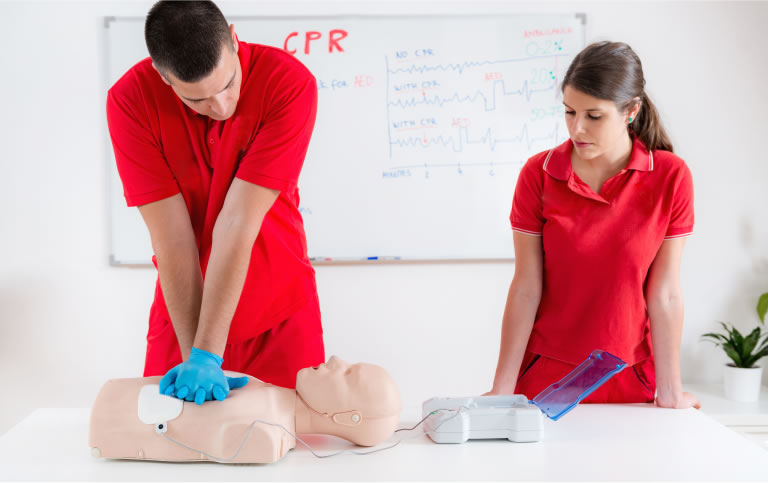Overexposure to extreme heat or cold can cause serious health problems.
Heat-related emergencies include:
- Heat cramps
- Heat exhaustion
- Heatstroke
Cold-related emergencies include:
Each condition has specific warning signs and requires prompt action.
Heat-Related Emergencies
Heat Cramps
What to Know:
Heat cramps are the mildest type of heat emergency. They often happen during physical activity in hot weather, especially when someone sweats heavily and does not replace fluids.
Signs and Symptoms:
- Muscle cramps or spasms
- Heavy sweating
- Dizziness
- Nausea
- Fatigue
First Aid:
- Move the person to a cooler area.
- Loosen tight clothing.
- Give small sips of water or an electrolyte drink.
- Call 9-1-1 if symptoms worsen or do not improve.
Heat Exhaustion
What to Know:
Heat exhaustion is more serious and can lead to heatstroke if not treated quickly.
Signs and Symptoms:
- Pale or flushed skin
- Heavy sweating
- Weakness or dizziness
- Headache
- Nausea or cramps
- Feeling faint
First Aid:
- Move the person out of the heat immediately.
- Loosen or remove excess clothing.
- Apply cool, wet cloths.
- Offer small sips of water if the person is alert.
- Call 9-1-1 if symptoms do not improve or worsen.
Heatstroke
What to Know:
Heatstroke is a life-threatening emergency. The body can no longer regulate its temperature.
Signs and Symptoms:
- Very high body temperature
- Confusion or altered mental state
- Fainting
- Seizures
- Nausea or vomiting
First Aid:
- Call 9-1-1 immediately.
- Cool the person right away.
- If possible, immerse them in cool water up to the neck.
- If immersion is not available, apply cool water and fan the person.
Do not delay emergency care.
Cold-Related Emergencies
Frostbite
What to Know:
Frostbite occurs when skin and underlying tissue freeze. It most commonly affects fingers, toes, ears, and the nose.
Signs and Symptoms:
- Numbness
- Pale, gray, or waxy skin
- Hard or frozen skin
- Blisters in severe cases
First Aid:
- Remove wet or tight clothing.
- Gently dry the area.
- Do not rub the skin.
- Warm the area using warm (not hot) water if there is no risk of refreezing.
- Seek medical care.
Hypothermia
What to Know:
Hypothermia occurs when the body’s core temperature drops too low. It can happen even in cool weather, especially if someone is wet or exposed for a long time.
Signs and Symptoms:
- Shivering
- Slurred speech
- Confusion
- Slow breathing or pulse
- Weakness or drowsiness
- Unconsciousness
First Aid:
- Move the person to a warm, dry place.
- Remove wet clothing.
- Wrap them in blankets or warm layers.
- Call 9-1-1.
- Stay with the person and monitor breathing.

